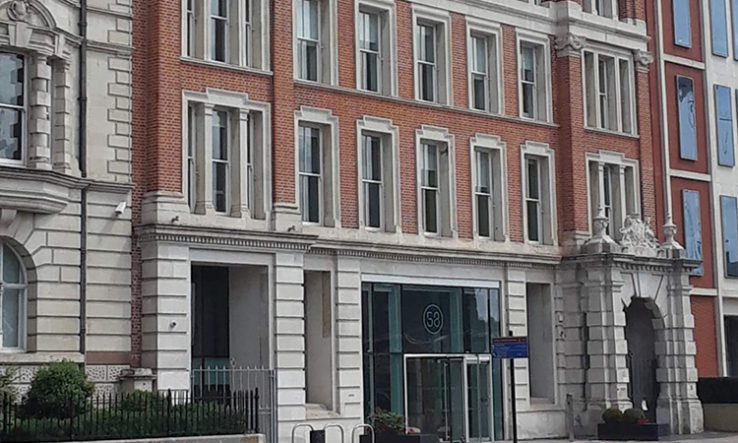
Image: Mico Tatalovic for Research Professional News
UKRI and NIHR criticised as member of decision-making panel was co-investigator on several awards
A row over grants co-awarded by the UK’s largest public research funder to investigate the Covid-19 risk among certain ethnic groups has deepened, with researchers voicing concerns that a member of the decision-making panel is a co-investigator on three of the successful projects.
UK Research and Innovation and the National Institute for Health Research came under fire last week after it emerged that none of the seven principal investigators leading projects on the disproportionate Covid-19 death rates among people from Black, Asian and minority ethnic backgrounds were Black.
Addy Adelaine, a Black academic and CEO of the social justice organisation, Ladders4Action, has since pointed out on Twitter that Kamlesh Khunti, a professor at the University of Leicester and director of the NIHR in applied research collaborations in the East Midlands, is a member of the decision-making panel as well as a co-investigator on three of the six successful projects awarded the £4.3 million funding.
Khunti’s work on the panel was in line with UKRI rules, and there is no suggestion that he influenced the panel to enhance the chances of his own grants being funded in any way. UKRI has also confirmed he was not present when his own bids were discussed. However, his role has led some in the research community to call for changes in similar situations.
Research Professional News has approached Khunti for comment.
A number of UK-based research funders said they allow researchers who apply to a call to also sit on the review panel assessing the applications in that call, the way UKRI and NIHR did.
But several major funders in the US and Europe do ban such practice.
The US government funder the National Institutes of Health and the European Commission’s European Research Council both told Research Professional News they do not allow researchers who apply to a call to also sit on a review panel for that call.
UKRI said that “if a panel member has a conflict of interest with a proposal, the member would be asked to leave the room, virtual or otherwise, for the entirety of the proposal’s evaluation”.
“He or she would not participate in any discussion or ranking of the proposal, or have any influence over the outcome,” UKRI added.
But some academics were unsatisfied by UKRI’s response.
While she would not comment on the specific case, Rachel Oliver a professor of materials science at the University of Cambridge, told Research Professional News she had “never been on a panel where any panel member had a proposal on which they were a principle or co-investigator being discussed at that panel”.
“I had always assumed that this is explicitly forbidden, because of the potential for bias that would be introduced,” said Oliver who has sat on several panels for the Engineering and Physical Sciences Research Council. “If that is not the case, I’ll need to rethink my involvement in future panels, because I would not want to be complicit in such a flawed system.”
She pointed out that even if a panel member does leave the room because of a conflict of interest, “they will still be involved in ranking the other proposals relative to the proposal for which they are conflicted”.
“Thus, they could either deliberately or sub-consciously disparage proposals which have similar rankings to the proposal with the conflict,” she said, “and hence influence the relative ranking of their proposal—effectively moving it up the ranked list.”
Gemma Derrick, a senior lecturer in higher education at Lancaster University who specialises in evaluation systems in academia, also declined to comment on the specific case, but said: “I do question why someone who has knowingly submitted at least three applications to this funding round would also think it politick to act as an evaluator for that same funding round”.
“The legitimacy of the outcomes are accepted on the presumption that the peer review process was conducted fairly,” she said. “It is clear that there are misgivings about the process and this will reflect on how the academic community values future UKRI grant outcomes.”
Responding to the concerns, a UKRI spokesperson said funding decisions were made by a “transparent peer review process”.
“Robust processes are maintained by UKRI’s councils to ensure that reviewers have the skills and knowledge required to make informed decisions while potential conflict of interests in peer review assessment are managed,” they said.
“Panel members do not take part in the assessment of any proposal where they could be potentially conflicted, and it is standard practice within UKRI’s councils for members with a conflict of interest to be asked to leave the room, physical or otherwise, while the relevant proposal is being assessed. These robust processes were used in all assessment and decision-making activities relating to the joint UKRI-NIHR Covid-19 and ethnicity call.”
An NIHR spokesperson, said all applications were reviewed in a “manner consistent with the Nolan committee’s standards in public life”, referring to the seven principles first set out in a report by Lord Nolan in 1995 that are now included in a range of Codes of Conduct across public life.
“It is important that there are sufficient review panel members who have the appropriate knowledge and skills to make an informed decision. Each decision to exclude someone from a review panel must balance the competing risks of bias due to conflict of interest with wrong decisions from lack of expertise,” they said.
“All review panel members are required to declare conflicts of interest in advance, and recuse themselves from the consideration process while a proposal in which they are involved is being assessed.”